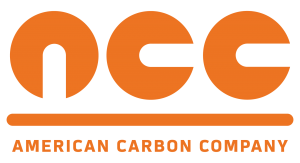Producing a cast magnesium anode is a very exact process. American Carbon has spent years developing our process that ensures the highest quality outcome possible.
Over the years American Carbon has seen a number of so-called anode producers come and go from the market. Having spent considerable time in China, we know these producers are more often than not nothing more than brokers spot buying from different manufacturers or purchasing raw magnesium ingot and recasting it in an anode shape without properly alloying it for electrochemical performance. This practice almost always has disastrous results for North American buyers. When purchasing magnesium anodes there are a number of things to look for:
- Proven track record of tested quality anodes by an independent third party testing agency (American Carbon recommends Anode Evaluations in Angleton, TX due to their many years of experience from the Dow Corporation, but there are others out there). Third party reports should show both electrochemical and chemical results. American Carbon regularly tests anodes to confirm the internal results from the foundry.
- Chemical Standards – All anodes must have chemical composition pursuant to ASTM B483 (see our Data Sheet for more information)
- Electrochemical Standards – All anodes must perform to the required standards as described by ASTM G97-2002. See below for further discussion on this test.
- “Chain of Custody” documentation, proving the person selling you the anode is willing to stand behind the quality. American Carbon does this by stamping each anode with a traceable heat lot and manufacturer name. Quality reports are provided by American Carbon for each heat lot.
- Verify how duty and freight charges will be handled. 98% of all magnesium anodes currently come from China. For this type of product the United States imposes an import duty of approximately 3%, and Chinese export duties or refunds change often. Be aware of pricing that is much lower than average, as often the seller is excluding these added costs either because they are unaware of them or because they are trying to circumvent the system. Both cases can add weeks if not months to your supply chain, not to mention the added cost of the duty plus penalties.
- Discuss payment terms. Most Chinese businesses require cash payment in full prior to shipment. After being approved by American Carbon’s credit department, you will be offered standard net 30 days terms.
- Conflict resolution. What is the typical response from the supplier if there is a problem with a shipment? Dealing with brokers from overseas can be a difficult process, not only from the time zone perspective, but also cultural differences in how business is conducted. With American Carbon, you are guaranteed satisfaction and you will be able to contact a person in the United States during all normal business hours (and often outside of normal business hours).
Electrochemical ASTM G97-2002 Testing and Results
The G97 test was first developed in the 1960’s by the Dow Corporation as a way to evaluate the electrochemical properties of raw magnesium. The G97 test is a destructive and quite expensive test, therefore the G97 test is always done as a representative test for a heat batch or order. There are 2 key results to any G97 test that must be evaluated.
Open Circuit Potential
A tested anode should meet an industry recognized standard of -1.70 volts open circuit potential. This measures the output current that the anode can produce. A lower than -1.70 volt result signifies an anode that will not protect as large an area as typically engineered for.*
Anode Efficiency
This measures the expected life of the anode. The generally accepted standard is 500 amp hours or 50% efficiency. Engineers design a magnesium protected system to last a number of years, typically the design basis is based upon a 50% efficient anode.*
*Check with a design engineer for the requirements for your project.
The bottom line is, while an anode may be more cost effective up front, does a couple dollar savings today justify thousands of dollars in expenses in a few years when the system fails prematurely? See our case study here. The expensive part of any Cathodic Protection project is the installation, not the anode cost. If you would like any more information on magnesium quality and the marketplace, please Contact Us.
